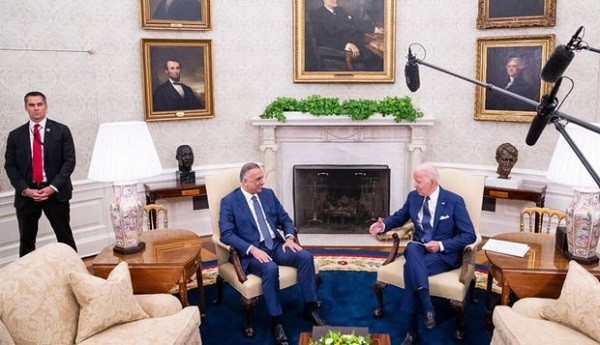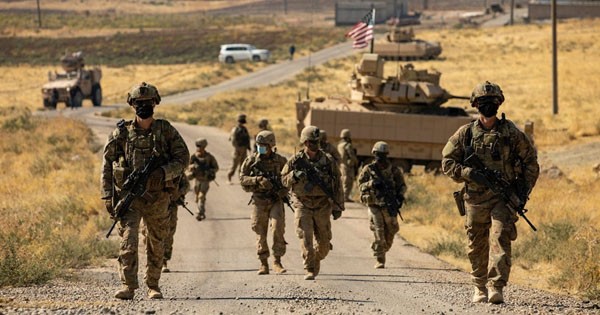(VOVWORLD) - The US has announced that its combat mission in Iraq will end by the end of this year. But it’s not a unilateral withdrawal decision as in Afghanistan. The US and Iraq have come to an agreement with strategic intentions from both sides.
 US President Joe Biden meets Iraqi Prime Minister Mustafa al-Kadhimi in the Oval Office on July 26, 2021. (photo: The New York Times) US President Joe Biden meets Iraqi Prime Minister Mustafa al-Kadhimi in the Oval Office on July 26, 2021. (photo: The New York Times) |
During a negotiation in Washington on July 26, US President Joe Biden and Iraqi Prime Minister Mustafa al-Kadhimi reached an agreement on an official end to the US’s military combat mission in Iraq after 18 years.
Compared to its withdrawal from Afghanistan, the US’s withdrawal from Iraq has a different meaning and implication. The US will maintain its relations and close cooperation with Iraq to serve its national interests.
US maintains close military cooperation with Iraq
Analysts say the US prefers an official agreement through negotiation with Iraq, not a unilateral withdrawal decision, to serve its strategic intentions in Iraq and the region. The US wants Iraq to be a pillar of stability in the Middle East, which will not only help the US access Iraq’s rich resources but also maintain its influence in the Middle East. The US will continue to help Iraq reduce its dependence on Iran, particularly for energy. President Biden has pledged to provide Iraq with training and support for its troops to counter the Islamic State.
 US troops will change from combat mission to training and security consultation for Iraq after December 31, 2021. (Photo: US army/ Spc. Jensen Guillory) US troops will change from combat mission to training and security consultation for Iraq after December 31, 2021. (Photo: US army/ Spc. Jensen Guillory) |
A new beginning for Iraq
The US’s troop withdrawal agreement is seen as a political and diplomatic success for Prime Minister Mustafa al-Kadhimi. He was under huge pressure from pro-Iran political factions in the government, who have repeatedly demanded that foreign troops led by the US leave Iraq.
The agreement has responded to the pressure from those factions, while ensuring that Iraq has the US’s continued security and military support in its fight against terrorism, particularly ISIS. In effect, the Iraqi government has pulled off a successful balancing act between the US and Iran.
The agreement is seen as a way for Iraq to carry out its internal and external policy strategies with greater autonomy as it prepares for a general election in October. But it’s only a first step and no guarantee of Iraq’s future stability. There are considerable risks involved in the US’s complete withdrawal.
For one thing, there is a deep division between political factions in Iraq. Some factions have announced they will boycott the coming election and some have condemned the agreement with the US.
Government security forces have not demonstrated much ability to handle security crises, and financial resources have been exhausted by corruption, social instability, and the COVID-19 pandemic.
The Islamic State has resurged recently, launching scores of attacks on US and government targets.
Experts warn that the Iraqi government should closely consider the situation in Afghanistan and make necessary preparations for its own future in a region that will continue to be challenged by major political and security complications.